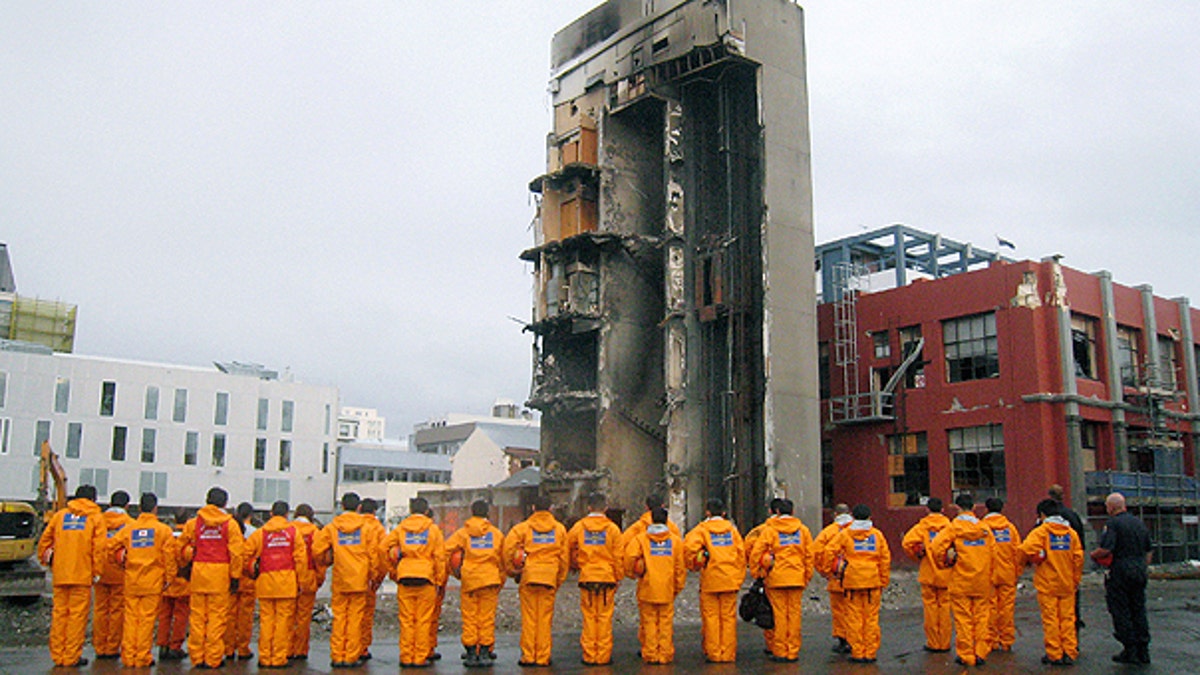
March 6: In this photo released by Japan Disaster Relief Team, its members observe a moment of silence near at the collapsed CTV building in Christchurch, New Zealand. (AP)
WELLINGTON, New Zealand – Some 10,000 houses and several hundred commercial buildings in Christchurch will have to be demolished because of earthquake damage, while some parts of the city will have to be abandoned altogether, New Zealand's leader said Monday.
The magnitude 6.3 temblor that hit Feb. 22 shattered homes, heritage buildings and office blocks, and caused 166 confirmed deaths. Officials expect the toll to rise to more than 200 as rescuers continue to search for bodies in the rubble.
Prime Minister John Key said some 10,000 houses will have to be demolished in the city, including 3,300 that were damaged by an earlier magnitude 7.1 quake on Sept. 4 that caused far less damage. Several hundred commercial buildings in the downtown area also will have to be bulldozed, he said.
"Potentially there are some ... areas of Christchurch which will need to be abandoned and we will have to provide other alternatives for people to live in because the land has been so badly damaged, we can't fix it — certainly not in a reasonable time frame," he said.
Earthquakes can cause sections of earth to liquefy and push up to the surface as watery silt, a process called liquefaction. In Christchurch, 260,000 tons of silt have already been scraped away.
"There are some parts of Christchurch that can't be rebuilt on" due to damage from liquefaction, Key told reporters.
He said modular homes will be brought in to provide temporary housing for some of the many thousands of displaced.
Work crews are still clearing rubble from the earthquake, which badly hit the downtown area and cut water and power services across the city. Almost all electricity supplies have been restored, but residents in the city are being told to boil tap water because of the risk of contamination.
Officials say some 70,000 people — one-fifth of Christchurch's population of 350,000 — have left the city temporarily as a result of the quake.
A national memorial service is planned for March 18, and Key said the open-air service in a city park could attract up to 100,000 people.








































